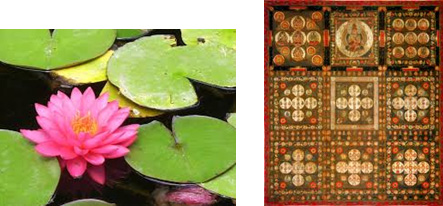Well, today I’ll show you what funerals in Japan are like these days.

International Comparison of Funeral Costs
As I mentioned in the previous blog, most Japanese hold services for the deceased according to Buddhist rites. There are different kinds of styles of wakes and funerals in Japan, but in general, a family member close to the deceased hosts the funeral, inviting relatives, friends, acquaintances, and neighbors of the departed. The funerals of this kind are one of the biggest events, like weddings. Therefore, they are expensive. The national average funeral cost in Japan is around 2.0 million yen, while a wedding is around 2.5 million yen. According to Wikipedia, the average funeral cost is around 2.31 million yen in Japan, 0.444 million yen in the US and 0.123 million yen in the UK. Most Japanese people are saving money for their post-retirement years, including their own funeral expenses.
In recent years, however, more and more Japanese seem to hold private funerals without following this tradition. My husband and I agree with the idea; we don’t think we need lavish funeral events anymore.
On the other hand, when my father-in-law passed away, my mother-in-law wanted to hold an event-style funeral. Her husband was a person of few words and disliked big parties, but his wife wanted to display a lot of paintings her husband made as a hobby in the funeral venue. She wanted to show the paintings to attendees. It was important for my mother-in-law that people in the neighborhood thought she held a decent funeral. However, my mother-in-law is a person who has a hard time picking from a list or making her own decisions. As the result, we, my husband, her first son, and I were as busy as beavers on behalf of our mother. Lovely.
In Japan, as soon as a member of your family dies you assign a funeral company. The company solely undertakes a string of actions you need to perform as the host of a funeral: treating the body, arranging for the funeral venue and contacting a Buddhist monk, building and decorating an altar, taking care of attendees, preparing catered meals and gift boxes for attendees; and moving to and from the crematorium. I hear funeral business in Japan is about to become a 2-trillion-yen (20-billion-dollar) industry. The bereaved, and especially the host of the funeral, are the ones who had the closest relationship with the deceased, so they are actually too sad and lonely to organize the funeral rites. Therefore, the designated funeral company is absolutely necessary because they do facilitate the funeral rites and take care of the attendees very well. Most funeral companies offer package selections for funeral services they perform for the family from the time of death to the end of cremation. A few days after the funeral, the host gets a large bill.
Even in Heaven, Money Talks. Is It True?
Funeral companies establish good relationships with monks who chant Buddhist sutras, temples and funeral homes, and cemeteries. So you don’t have to find the monk and ask for the Dharma name of the deceased. Your funeral company will do it for you, and they show you a price list of offering (service fee) for the monk and the fee for designating the Dharma name. Dharma names are classified according to rank; the higher rank you want, the more money you are asked to pay. As someone living in modern society, I am wondering why money can buy your postmortem status. And actually, only heaven knows if you are treated nicely in the afterworld…
It seems that there are some people like me who question event-style funerals and a costly designation system of Dharma names. Since more and more people feel funeral costs are too expensive, some funeral companies have offered low-priced services in recent years. The other day I happened to see a funeral company’s advertisement on a building on the street. It showed that the lowest service fee was 98,000 yen. I googled the funeral service and found that the amount was really the minimum price. I mean, if you want other necessary services, you’ll be billed at 300,000 to 500,000 yen eventually.
How do you want to be treated at the very last moment of your life? Recently in Japan, preparing for your ending including your own funeral and burial has become known as shukatsu, and it is a new trend that we try to plan for our ending while we still have a sharp mind and body. After I experienced my family funeral, I reaffirmed that I had to work on my shukatsu before it was too late. I believe that thinking about my ending, being consistent with my own principles and leaving my written will, are necessary for myself and for my family. I also wish members of my family would leave their will either in writing or oral message so that the rest of the family won’t feel troubled about what they should do.
Reported by Yukari Aoike, Sugahara Institute
